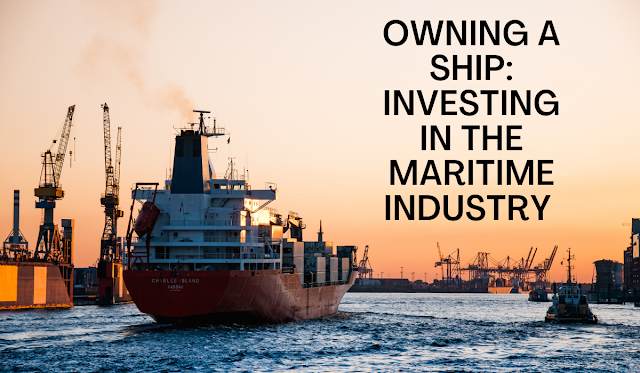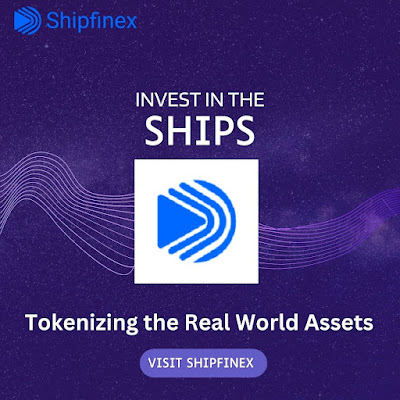Owning a Ship: Investing in the Maritime Industry
Owning a Ship: Investing in the Maritime Industry
 |
Owning a ship |
Are you interested in investing in the maritime industry? Have you considered owning a ship? Owning a ship can be a great investment opportunity for those looking to enter the maritime industry. In this article, we will explore the benefits and challenges of owning a ship, as well as the various factors to consider when investing in this industry.
Understanding the Maritime Industry
Before investing in the maritime industry, it is important to understand the basics. The maritime industry encompasses a wide range of activities, including shipping, shipbuilding, and port operations. This industry is essential for global trade and transportation, making it an attractive investment opportunity.
The Benefits of Owning a Ship
There are several benefits to owning a ship, including:
Potential for Profitability
Owning a ship can be a profitable investment, particularly if the vessel is used for commercial purposes, such as transporting cargo. In addition, owning a ship can provide passive income through leasing or chartering arrangements.
Control Over Shipping Logistics
Owning a ship gives investors more control over shipping logistics, including determining routes, scheduling, and cargo types. This control can lead to increased efficiency and profitability.
Potential for Tax Savings
Owning a ship may provide investors with tax benefits, such as tax deductions for maintenance and repairs, as well as depreciation deductions.
The Challenges of Owning a Ship
While owning a ship can be a lucrative investment, there are also several challenges to consider, including:
High Initial Investment
The cost of purchasing a ship can be significant, particularly for larger vessels. In addition, ongoing maintenance and operational costs can also be substantial.
Regulatory Compliance
Owning a ship requires compliance with numerous regulations, including safety and environmental standards. Failure to comply with these regulations can result in fines and penalties.
Market Volatility
The shipping industry can be subject to market volatility, which can impact profitability. Factors such as changes in global trade patterns, fuel costs, and geopolitical events can all impact the shipping industry.
Factors to Consider When Investing in the Maritime Industry
When considering investing in the maritime industry, there are several factors to consider, including:
Vessel Type and Size
Investors should consider the type and size of vessel they are interested in owning, as well as the potential uses for the vessel.
Financing Options
Investors should consider financing options for vessel purchase and maintenance, including traditional bank loans and leasing arrangements.
Market Conditions
Investors should research market conditions and trends, including supply and demand for shipping services, global trade patterns, and geopolitical events.
Regulatory Compliance
Investors should be aware of and comply with all relevant regulations, including safety and environmental standards.
Conclusion
Owning a ship can be a lucrative investment opportunity for those looking to enter the maritime industry. However, it is important to understand the benefits and challenges of owning a ship, as well as the various factors to consider when investing in this industry. By conducting thorough research and due diligence, investors can make informed decisions and maximize their returns.
FAQs
What is the maritime industry?
The maritime industry encompasses a wide range of activities, including shipping, shipbuilding, and port operations.
What are the benefits of owning a ship?
Owning a ship can provide potential profitability, control over shipping logistics, and potential tax savings.
What are the challenges of owning a ship?
The challenges of owning a ship include high initial investment, regulatory compliance, and market volatility.
What factors should be considered when investing in the maritime industry?
Investors should consider vessel type and size, financing options, market conditions, and regulatory compliance.


Comments
Post a Comment